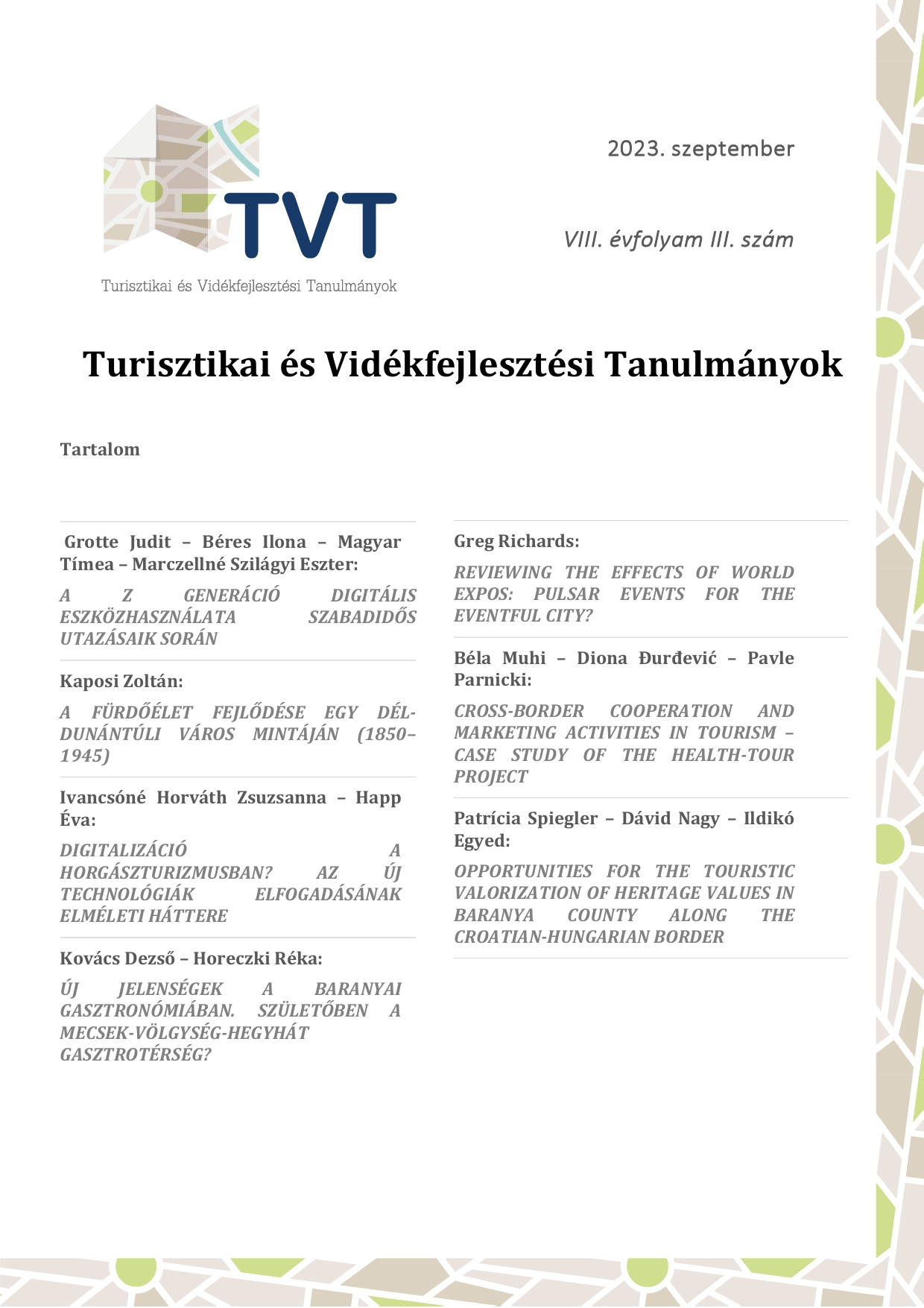Digitalisation in angling tourism? The theoretical background of the acceptance of new technologies
DOI:
https://doi.org/10.15170/TVT.2023.08.03.03Keywords:
digitalisation, angling tourism, new technologiesAbstract
The last ten years have shown that contrary to previous assumptions, angling tourism is not local and low-volume, not individual and not fixed, but rather it is strongly linked to using other complementary (sports, gastronomy, wellness) services, beyond the needs of family members and accompanying persons, thus reinforcing its “four-season” character. Between 2013 and 2018, there were major changes in the regulation and organisation of angling in Hungary, and in 2016 the right to manage natural waters was transferred to angling organisations, starting a new era. The process brought with it a massive increase in the number of anglers in Hungary and the development of angling tourism. 2019 represented another important milestone, when the electronic support of angling administration was launched through the HORINFO system. In this paper, we briefly summarise the changes and their consequences, and then trace the impact of each area, based on our previously developed model. We explore the current digitalisation of angling tourism and analyse secondary data to investigate the acceptance of new technologies by anglers. The results of the research show that digitalisation and the introduction of new technologies accelerated during the COVID-19 epidemic; however, their acceptance in angling tourism is slower. The percentage of actual users of new technologies among anglers ranges between 10–15%.


